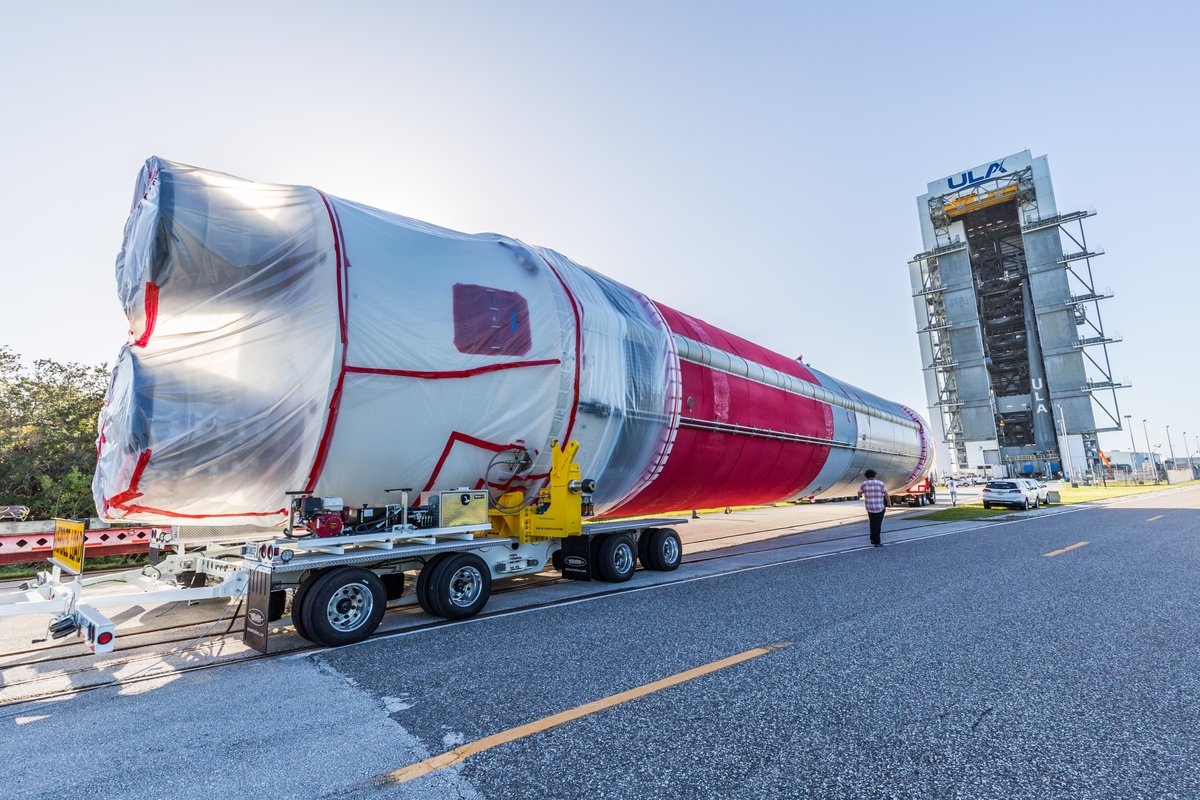National security insights for space professionals
National security insights for space professionals. Delivered Tuesdays. |
|
|
|
Welcome to this week's edition of SpaceNews Military, your concise source for the latest developments at the intersection of space and national security. In this issue, we cover:
- Soaring military demand for LEO satcom - Space Force fine-tuning commercial reserve program - Export reforms aim to make U.S. space industry more competitive
If this newsletter was forwarded to you, sign up for free here |
|
|
|
ULA begins launch prep for Vulcan's first military mission
United Launch Alliance (ULA) announced on Monday it has started preparations for the first national security mission of its new Vulcan rocket.
The company began assembling the rocket at its Vertical Integration Facility at Cape Canaveral for the upcoming U.S. Space Force mission designated USSF-106.
While Vulcan has completed two successful commercial launches, it has not yet received official certification for the National Security Space Launch (NSSL) program. ULA did not specify a target launch date for the mission.
One of the payloads on USSF-106 is the Navigation Technology Satellite-3 (NTS-3) developed by the U.S. Air Force Research Laboratory to test advanced positioning, navigation, and timing technologies that could enhance the Global Positioning System (GPS) used worldwide for navigation.
|  | | | Space Force moving forward with commercial reserve program
The Space Force continues to refine the details of the Commercial Space Augmentation Reserve (CSAR) program, which would allow rapid mobilization of private space assets during national security crises.
THE BIG PICTURE: The initiative would establish pre-negotiated agreements with commercial space companies, enabling DoD to quickly tap private sector capabilities when government systems are stressed or compromised. More than 80 companies have submitted formal responses to the program's RFI.
WHAT'S NEXT: Initial contracts are expected to be awarded in early 2025, with priority given to space domain awareness services, satellite communications coverage in the Indo-Pacific region, and integration with military networks during peacetime exercises, according to Col. Richard Kniseley, who heads the Space Systems Command's Commercial Space Office.
INDUSTRY FEEDBACK: Companies are seeking clarity on several provisions, particularly: The Space Force will host CASR-focused exercises in the National Capital Region in early February. Congressional committees have signaled support for the program, though lawmakers have requested a study on vendor financial protection measures.
"We're taking an iterative approach with the contracts, but we will be onboarding CASR members early next year," Kniseley told SpaceNews.
THE BOTTOM LINE: As military operations become increasingly space-dependent, DoD is looking to formalize backup systems through commercial partnerships before a crisis hits.
|
|
|
|
| |  | | | Military demand soars for LEO satellite services
The Space Force is about to blow past its projected spending cap for commercial low Earth orbit satellite services.
BY THE NUMBERS $900M: Original 5-year contract ceiling set in 2023 $660M: Amount already spent 1 year: Time it took to burn through 73% of the budget
THE BIG PICTURE: The Pentagon's appetite for commercial satellite services is proving insatiable, with military units tapping into secure, high-speed internet provided by private sector space companies. The Space Force facilitates procurement of these services through the Proliferated Low Earth Orbit (PLEO) program.
WHO'S WINNING: SpaceX's Starshield (military version of Starlink), OneWeb, Iridium Communications (with just one order)
WHAT'S NEXT: Col. Richard Kniseley, who runs the Space Systems Command's Commercial Space Office, says a ceiling increase is likely. "The appetite is definitely there," he said.
BEHIND THE SCENES: The program's success stems from its bulk-buying approach. Rather than letting individual military units negotiate their own deals, PLEO bundles requirements to secure better rates. |
|
|
|
U.S. Government Loosens Export Controls on Space Technologies — The Biden administration has relaxed export controls on certain space technologies, a move aimed at boosting the competitiveness of U.S. companies in the global space market.
The revisions ease restrictions on a range of items, including space-qualified sensors and certain satellite components, allowing broader foreign access while maintaining protections on sensitive technologies. These reforms follow years of industry lobbying and reflect the growing importance of commercial space innovation in national security.
|
|
|
|
|


No comments:
Post a Comment